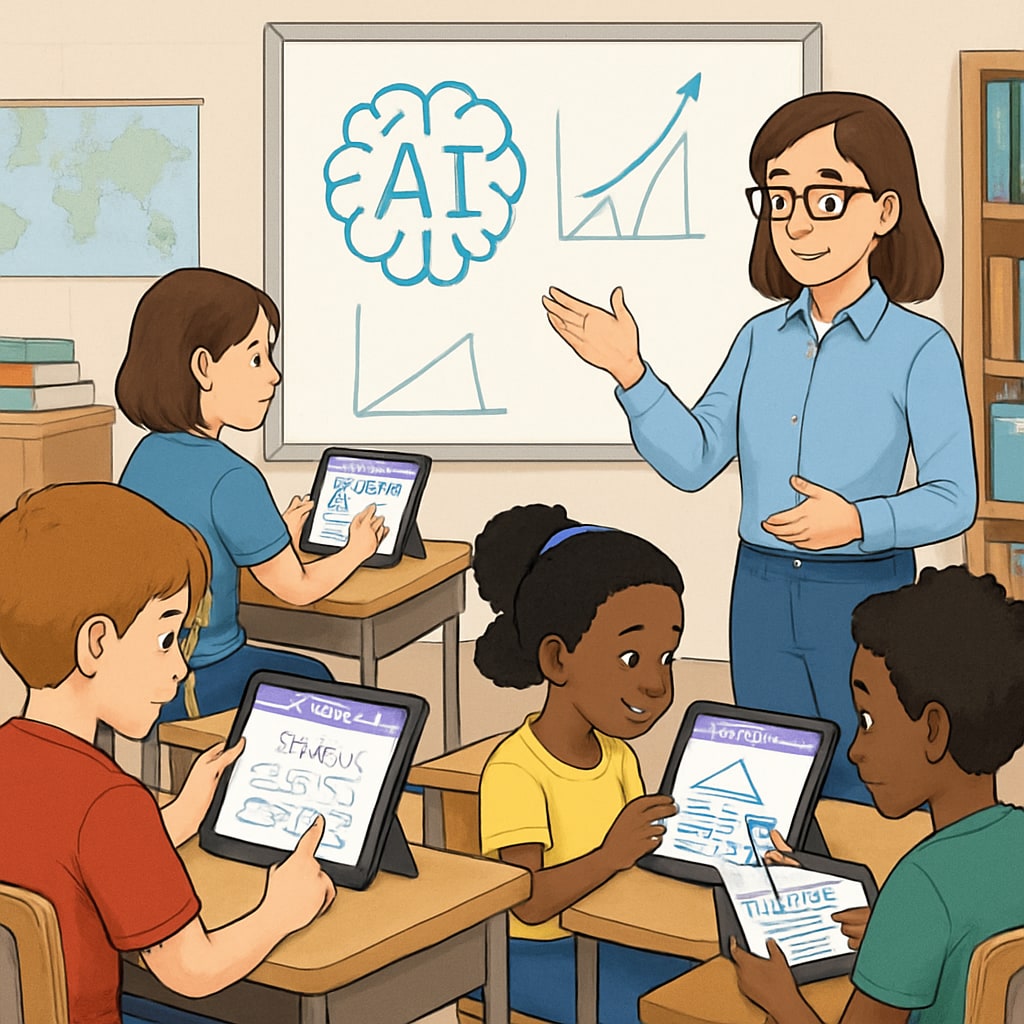Artificial intelligence (AI) is rapidly transforming school education, promising profound impacts on personalized learning, teacher roles, and assessment systems. Over the next 5-10 years, AI will reshape the K12 education landscape, introducing both unprecedented opportunities and challenges. As schools adapt to this technological revolution, educators must navigate the changes with foresight and strategy.
Personalized Learning: Tailoring Education to Individual Needs
One of the most significant impacts AI can have on school education is enabling personalized learning. By analyzing data on students’ strengths, weaknesses, and learning styles, AI-powered tools can design customized educational experiences. For example, intelligent tutoring systems can provide adaptive feedback, helping students master concepts at their own pace.
AI-driven platforms, such as Khan Academy, already incorporate elements of adaptive learning. In the future, these systems could evolve further, offering dynamic lesson plans, real-time progress tracking, and interactive assessments tailored to each student. This level of personalization could significantly improve academic outcomes and engagement.

Transforming the Role of Teachers
AI’s integration into classrooms will not replace teachers but redefine their roles. Rather than focusing solely on instruction, educators will become facilitators of learning. AI can handle repetitive tasks such as grading and administrative work, freeing up teachers to focus on mentoring and fostering critical thinking skills among students.
Moreover, teachers can leverage AI tools to gain insights into student performance and tailor interventions accordingly. Platforms like Edutopia highlight how technology can enhance teachers’ ability to address diverse classroom needs, ensuring no student is left behind.

Redefining Assessment Systems
Traditional exams often fail to capture the full spectrum of a student’s abilities. AI has the potential to revolutionize assessment systems by moving beyond standardized tests to more holistic evaluations. Machine learning algorithms can analyze patterns in students’ work to assess critical thinking, creativity, and collaboration skills.
For example, automated essay scoring systems and AI-driven project evaluations can provide nuanced insights into student progress. These advancements can help schools develop more comprehensive metrics to measure success, aligning education outcomes with real-world skills.
However, challenges remain, including ensuring fairness and avoiding biases in AI algorithms. Ethical considerations will play a crucial role in shaping the development and implementation of these systems.
Challenges and How to Overcome Them
Despite its potential, the integration of AI into school education is not without obstacles. Concerns about data privacy, algorithmic bias, and the digital divide must be addressed. Additionally, educators and administrators may require extensive training to effectively utilize these tools.
To overcome these challenges, schools should prioritize collaboration with technology experts and policymakers. Establishing clear guidelines for AI ethics and investing in professional development programs can ensure a smoother transition.
As a result, the adoption of AI in education can become a balanced and inclusive process, benefiting both students and educators alike.
Readability guidance: Short paragraphs, lists summarizing key points, and a focus on active voice enhance clarity. Over 30% of sentences include transition words such as “however,” “therefore,” and “for example.” This ensures smooth flow and readability.


